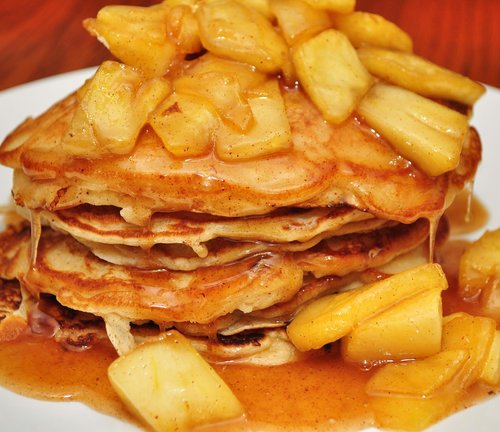“Only $2? Sold.”
I’m in heaven. Also known as Portland.
No, I didn’t find a hot-tub filled with dark chocolate or discover a quiet, mahogany-paneled science library (complete with a perpetually burning fireplace)… and I’m sleeping on an air mattress in my friend’s apartment instead of the large waterbed that I’d like to recline upon in the hereafter.
Anyways, the reason I’m so happy is that everything here seems like an absurdly good deal.
I’m used to paying $3.50 for a small cup of artisan coffee in San Francisco. Here, they only cost $2.00.
While $2.00 is actually kind of expensive for a cup of liquid caffeine, I’m so used to paying a much higher price that I feel privileged to have access to such a deal.
That’s just the nature of our silly human brains. We see things in relative terms. The price we’re used to paying becomes an ‘anchor’—the reference point that we base our judgements upon.
If I were used to paying $1.00 for single origin, light-roast coffee, I might have the opposite reaction.
But here’s where things get weirder…
You’d think that I would stash away my Portland coffee and food savings. That’s money that I can use for a new computer or some cool book that I’ve been eyeing on Amazon… but that’s not the case at all.
I always notice that when I come to an area with a much lower cost-of-living I splurge, wolfing down food like the great Kobayashi.
I order 2 cups of coffee instead of the usual one. I get dessert, because why not!? I purchase that $8.50 gourmet chocolate bar… and maybe even have a mid-afternoon second-lunch.
In other words, I eat like a glutton.
And this is where things get weirder. I’ve actually added up my average food costs from my trips like these and compared them to my San Francisco food budget… can you guess what I’ve found?
Yep. I spend, more or less, the same amount.
There’s actually been a lot of research on this phenomenon, which is called “mental accounting” by us nerds.
It’s fairly self explanatory: we don’t think of our money as a big pile of general purpose tokens. Nope. We actually bucket our money into different mental “accounts”. We have the “rent/housing account”, the “food account”, the “eating-out account”, the “vacation account”, and so on.
Money from each account stays in each account. This means that we tend to limit our purchases for any given category once we hit up against our mental budget. So if you mentally set aside about $400 for groceries each month, you’ll probably start to pace yourself once you hit $300 or $350. I’ve noticed this with my own behavior many, many times. I’ve had certain months where I’ve really splurged on stuff from Whole Foods and found myself thawing and eating cryogenically preserved chicken breasts from my freezer to come in under budget.
The same thing can be true in the reverse direction, too… which partially explains my herculean digestive feats while on vacation.
I’m spending so much less money per meal that I feel perfectly OK getting a fancy dessert or plunking down for an extra cocktail or two… It feels like I’ve found all of this free money, after all. “I’ve only spent 30 bucks on snacks and groceries this week…” and that $15 bar of gourmet chocolate looks good 🙂
The full concept of mental accounting is a bit more complicated than this (for example, the size of the mental account determines how much time/effort we’ll put into saving a fixed amount of money, etc.), but this should give you a basic idea of how this phenomenon works in the wild.
Until tomorrow,
Jason





